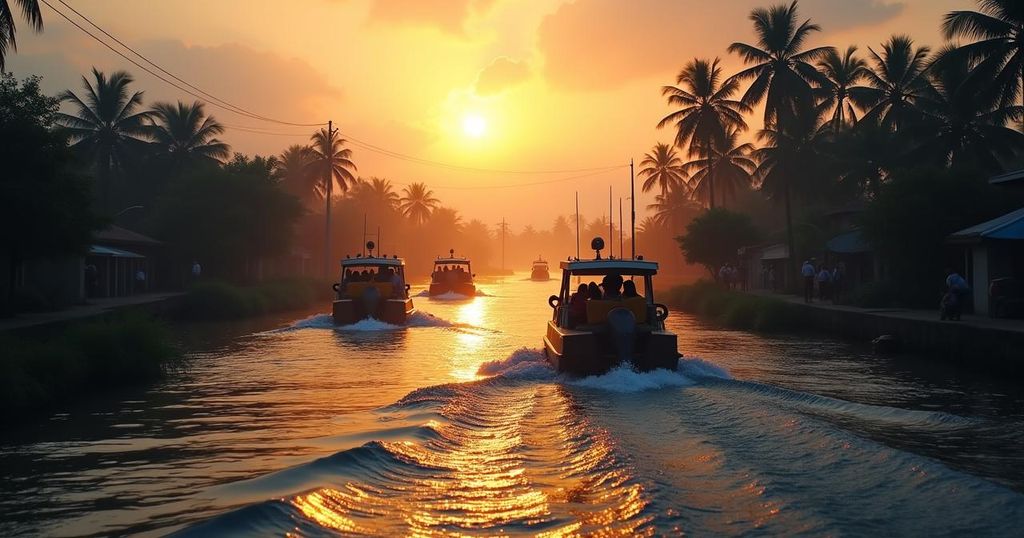Boats Become Hazardous Lifelines for Congolese Residents Amid Rebel Activity

In eastern Congo, reliance on unsafe boats as the primary means of transportation is increasing as roads become blocked by rebel activity. A recent capsizing incident resulted in over 70 deaths, including eight members of one family. Overloading and lack of safety measures are pervasive problems in this perilous journey across Lake Kivu, leading to protests over governmental negligence. Despite the dangers, residents assert that traveling by boat remains their only option due to the ongoing conflict and poor road conditions.
In eastern Congo, where rebel activity often renders roads impassable, local residents face a grim transportation reality: they must frequently rely on boats that have become increasingly unsafe. On October 8, 2024, Serge Nzonga prepared to board the Emmanuel 2 ferry from Goma to Bukavu, despite having lost eight family members when a similar overcrowded vessel capsized just days earlier, resulting in the tragic deaths of 70 individuals. The perilous journey across Lake Kivu is viewed as the only viable option for many, as the roadways are fraught with danger due to violent clashes between security forces and insurgents. As of late, incidents involving overloaded boats have surged, pushing families, traders, and other citizens to opt for this risky alternative in the absence of functional infrastructure. Nzonga articulated the desperate situation, stating, “If we do not take this journey, there is no other route.” Safety measures are rarely executed, resulting in chronic overloading of vessels, as evidenced by the capsizing incident near Kituku port wherein witnesses reported the boat losing its balance due to excessive passengers. While authorities have promised accountability and enforcement of safety regulations, these assurances often remain unfulfilled, leading to a continued cycle of tragedy. Eyewitness Francine Munyi described the scene just before the disaster, noting, “It started to lose its balance,” indicating the imminent danger faced by passengers. As the Emmanuel 4 boat set out on its journey, many passengers traveled without life jackets, reflecting the inadequate safety measures in place. Canoes were observed searching for the bodies of victims from the recent accident, while family members awaited news with a mixture of hope and despair. Despite acknowledging the risks associated with traveling without proper safety gear, Nzonga affirmed, “We are scared, but it is the only way we have to get to the other province.”
The Democratic Republic of Congo is plagued by ongoing instability due to armed conflict, particularly in the eastern regions where roads are often blocked or rendered dangerous by rebel activity. With public transportation severely limited, many communities have resorted to utilizing boats as a primary means of transport. However, this reliance raises significant safety concerns, as vessels are frequently overloaded and lack the necessary safety measures. Over the years, there have been numerous reports of boat capsizings, resulting in fatalities and prompting protests over governmental negligence regarding transportation safety. The precarious nature of travel in this region has gained international attention, highlighting issues of infrastructure, corruption, and the humanitarian impacts of conflict.
The ongoing reliance on boats for transportation in eastern Congo poses severe risks to passengers, illustrated poignantly by the recent capsizing that claimed numerous lives, including members of Serge Nzonga’s family. As roads remain perilous due to armed conflict, the absence of safety regulations and measures further exacerbates this transport crisis. Thus, travelers face a heartbreaking choice between danger and desperation, underscoring the urgent need for improved infrastructure and safety oversight to protect vulnerable communities. Without substantial intervention, such tragic incidents are likely to continue.
Original Source: apnews.com







